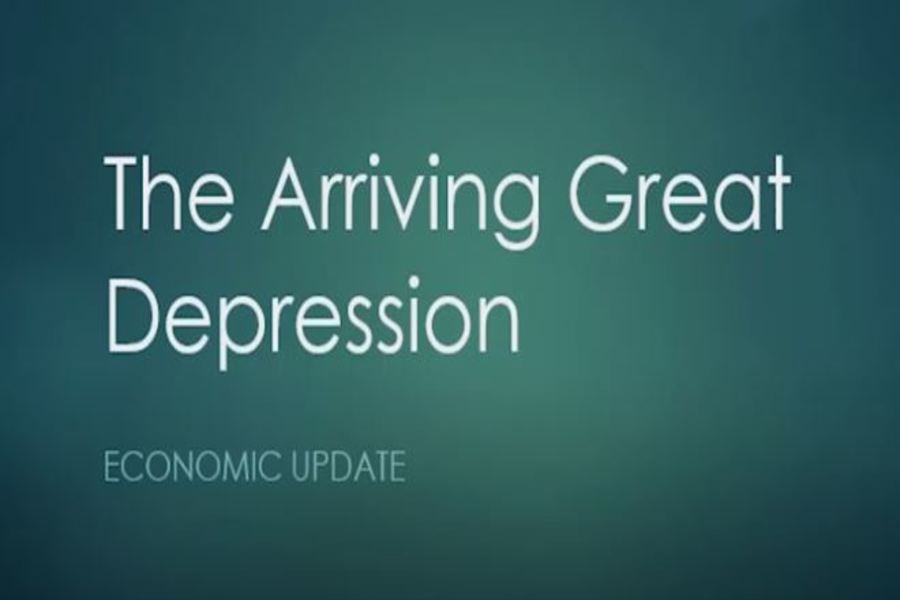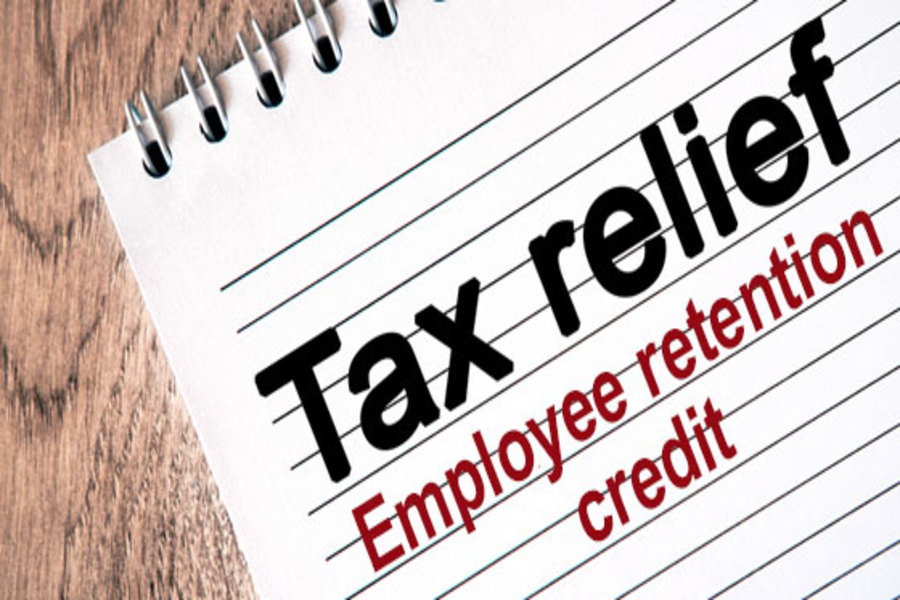In the midst of the Coronavirus (COVID-19) pandemic, Americans are focusing on their health and financial well-being. To help with the impact facing many people, the government has provided a range of relief. Here are some new announcements made by the IRS. More deadlines extended As you probably know, the IRS postponed the due dates for certain federal income tax payments — but not all of them. New guidance now expands on the filing and payment relief for individuals, estates, corporations and others. Under IRS Notice 2020-23, nearly all tax payments and filings that would otherwise be due between April 1 and July 15, 2020, are now postponed to July 15, 2020. Most importantly, this would include any fiscal year tax returns due between those dates and any...

Seniors face a double threat with the coronavirus (COVID-19) pandemic. The elderly are considered the most vulnerable population for medical complications associated with the virus. They’re also prime targets for COVID-19 scams. If you’re a senior — or have elderly relatives and friends — read and share the following information. Everyone a potential victim There’s nothing new about fraud perpetrators attacking seniors, who may be less savvy about phishing emails and online scams and more trusting of strangers. As a study conducted by the FINRA Investor Education Foundation and several other groups found, a major risk factor for losing money to scams is social or physical isolation, which is more common among the elderly. Of course, during the current crisis, everyone’s a potential fraud victim. As with all consumers,...
The IRS has issued guidance providing employment tax deposit relief for employers that are entitled to the refundable tax credits provided under two laws passed in response to the Coronavirus (COVID-19) pandemic. The two laws are the Families First Coronavirus Response Act, which was signed on March 18, 2020, and the Coronavirus Aid, Relief, and Economic Security Act (CARES) Act, which was signed on March 27, 2020. Employment tax penalty basics The tax code imposes a penalty for any failure to deposit amounts as required on the date prescribed, unless such failure is due to reasonable cause rather than willful neglect. An employer’s failure to deposit certain federal employment taxes, including deposits of withheld income taxes and taxes under the Federal Insurance Contributions Act (FICA) is generally subject to...
As posted to the Peak Prosperity YouTube Channel on 4/3/2020 (Run Time: 25 min, 0 sec) When Starting Clip at Time Code 19:39 Author's Description of "The Arriving Great Depression 2.0" Segment of Clip "In the past two weeks (as of 4/3/20), 10 million Americans have already filed for unemployment. Moody's is now warning that 30% of all mortages could go into default this year. And the peak of the Coronavirus outbreak in the US still isn't projected to arrive for several more weeks. How bad will the economic fallout from covid-19 be? Truly epic. As in possibly "Great Depression 2.0" magnitude. Yes, the clown show in charge of dealing with this mess will likely just make things worse. But the reasons for the dismal economic outlook go far...
As posted to the Peak Prosperity YouTube Channel on 4/2/2020 (Run Time: 7 min, 4 sec) Author's Description of Clip "The most effective step each of us can take right now to beat COVID-19 is to start wearing a mask. It's cheap. It's easy. And if we call do it, it will give us a HUGE advantage in the fight against this pandemic. You don't need a fancy mask. A simple DIY version will suffice. Wearing one does the following: greatly reduces the particles a sick person can spread, prevents you from touching your mouth and nose, by far the most common way we can get infected, and substantially increases your odds of having a mild case, should you get infected If we all wear masks: I protect...
As we all try to keep ourselves, our loved ones, and our communities safe from the coronavirus (COVID-19) pandemic, you may be wondering about some of the recent tax changes that were part of a tax law passed on March 27. The Coronavirus Aid, Relief, and Economic Security (CARES) Act contains a variety of relief, notably the “economic impact payments” that will be made to people under a certain income threshold. But also, the CARES Act changes EBP rules and provides a new tax break for some people who contribute to charity. Waiver of 10% early distribution penalty IRAs and employer sponsored retirement plans are established to be long-term retirement planning accounts. As such, the IRS imposes a penalty tax of an additional 10% if funds are...
Like the coronavirus (COVID-19) pathogen itself, incidents of COVID-19 fraud are surging and financial losses are piling up. The Federal Trade Commission (FTC) reports that the number of complaints about new COVID-19 fraud schemes doubled in just one recent week. As of March 31, 2020, losses attributed to the outbreak stood at $5.9 million. Here are some of the scams criminals are perpetrating. Bad medicine Although travel and vacation company disputes top the FTC’s most recent list of COVID-19 complaints, most of these relate to cancellations and refunds, not fraud. Much more worrying for American consumers are the many online vendors hawking suspect treatments and tests. On March 9, the FTC sent warning letters to seven companies advertising everything from virus-fighting tea to essential oils. The Commission...
The recently enacted Coronavirus Aid, Relief, and Economic Security (CARES) Act provides a refundable employee retention tax credit for 50% of wages paid by eligible employers to certain employees during the COVID-19 pandemic. The employee retention credit is available to employers, including nonprofit organizations, with operations that have been fully or partially suspended as a result of a government order limiting commerce, travel or group meetings. The credit is also provided to employers who have experienced a greater than 50% reduction in quarterly receipts, measured on a year-over-year basis. IRS ISSUES FAQs The IRS has now released FAQs about the credit. Here are some highlights. How is the credit calculated? The credit is 50% of qualifying wages paid up to $10,000 in total. So the maximum credit for an...
Scam artists know how anxious business owners are during the current coronavirus (COVID-19) crisis. They know that as you struggle to meet customer demands, pay employees and stay solvent, you’re more likely to drop your guard and fall for a fraud scheme. The last thing your business needs right now is to suffer additional financial losses. So keep an eye out for the latest ways that COVID-19 poses fraud threats to businesses: Fake suppliers Whether you’re a manufacturer seeking raw materials or a grocer desperate to keep shelves stocked, you may have trouble getting your usual supplies. If a regular supplier is temporarily — or permanently — shut down, be careful about doing business with unknown vendors. Many authentic-looking websites are, in fact, fronts for criminal operations,...
In an Information Release (IR 2020-61), the Treasury Department and IRS have announced that distribution of economic impact payments, made as part of the Coronavirus Aid, Relief, and Economic Security Act (the CARES Act), will begin in the next three weeks and will be distributed automatically, with no action required for most people. However, people who did not file 2018 or 2019 federal income tax returns will need to submit "a simple tax return" to receive the stimulus payment. The Information Release answers the following questions: Who is eligible for the economic impact payment? Tax filers with adjusted gross income up to $75,000 for individuals and up to $150,000 for married couples filing joint returns will receive the full payment. For filers with income above those amounts, the payment...
- 1
- 2
- 3
- 4
- 5
- 6
- 7
- 8
- 9
- 10
- 11
- 12
- 13
- 14
- 15
- 16
- 17
- 18
- 19
- 20
- 21
- 22
- 23
- 24
- 25
- 26
- 27
- 28
- 29
- 30
- 31
- 32
- 33
- 34
- 35
- 36
- 37
- 38
- 39
- 40
- 41
- 42
- 43
- 44
- 45
- 46
- 47
- 48
- 49
- 50
- 51
- 52
- 53
- 54
- 55
- 56
- 57
- 58
- 59
- 60
- 61
- 62
- 63
- 64
- 65
- 66
- 67
- 68
- 69
- 70
- 71
- 72
- 73
- 74
- 75
- 76
- 77
- 78
- 79
- 80
- 81
- 82
- 83
- 84
- 85
- 86
- 87
- 88
- 89
- 90
- 91
- 92
- 93
- 94
- 95
- 96
- 97
- 98
- 99
- 100
- 101
- 102
- 103
- 104
- 105
- 106
- 107
- 108
- 109
- 110
- 111
- 112
- 113
- 114
- 115
- 116
- 117
- 118
- 119
- 120
- 121
- 122
- 123
- 124
- 125
- 126
- 127
- 128
- 129
- 130
- 131
- 132
- 133
- 134
- 135
- 136











